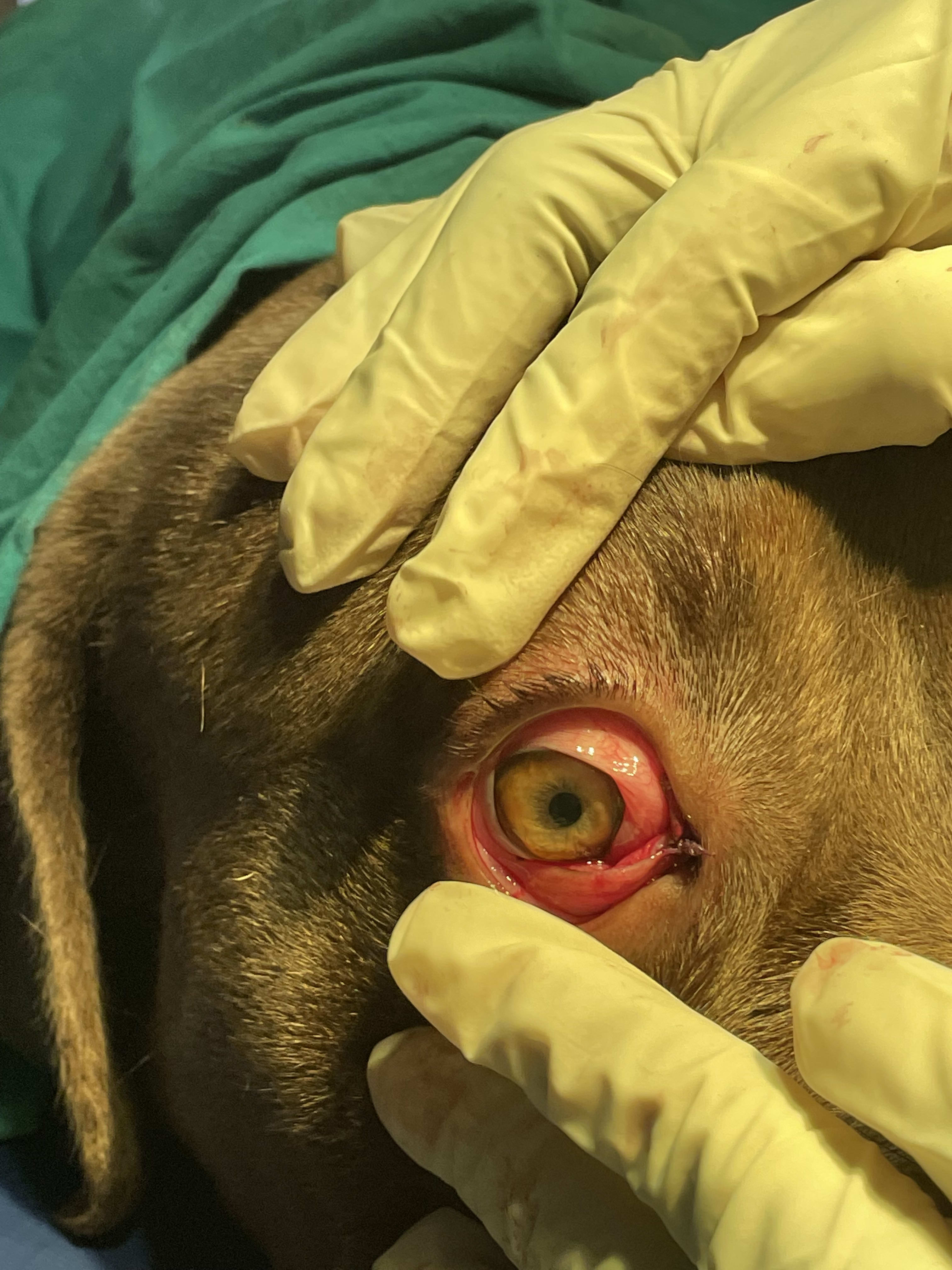Livestock
Top 5 Opportunities For Livestock Farmers In Nigeria| Agribusiness, Projects And Expectations
Nigeria’s livestock farming sector is undergoing a remarkable transformation. The growing demand for animal protein, driven by a population of over 220 million, presents massive opportunities for farmers ready to scale up their operations. The future of livestock farming in Nigeria lies in innovation, diversification, and value chain integration. Mygotovet recognizes these trends and are committed to supporting farmers with expert veterinary care, animal health management, and agribusiness guidance to help them thrive in this fast-evolving sector.
Currently, the Nigerian livestock industry contributes significantly to the agricultural GDP, employing millions and ensuring food security. Yet, gaps in productivity, supply chain logistics, and funding continue to hinder growth. Fortunately, these challenges also create room for innovation, new investments, and profitable business ventures. Below, we explore the top five opportunities for livestock farmers in Nigeria and how they can harness them to build sustainable, profitable agribusinesses.
1. Expanding Animal Production to Meet Soaring Demand
The first major opportunity for livestock farmers in Nigeria lies in meeting the rising demand for meat, eggs, and dairy. Despite the country’s large livestock population, local production still falls short of demand, forcing reliance on imports. This supply deficit opens up immense potential for local entrepreneurs to fill the gap.
Poultry farming, for example, remains the most popular and lucrative livestock business in Nigeria. The poultry industry is valued at over $4 billion, with steady growth in both broiler (meat) and layer (egg) production. However, despite this success, Nigeria still imports chicks and feed, indicating vast opportunities for domestic expansion.
In addition, piggery, rabbit, and snail farming are becoming highly profitable ventures for new entrants. Pigs grow and reproduce quickly, ensuring high turnover and profitability, while rabbits require minimal space and investment. Snail farming is another low-cost agribusiness opportunity offering premium returns, given the high demand for snails as a healthy, protein-rich delicacy.
Government-backed initiatives like the Livestock Productivity and Resilience Enhancement Scheme (L-PRES) are supporting farmers in these sub-sectors through improved breeds, feed development, and training, making now the perfect time to invest in animal production.
2. Driving Aquaculture Growth through Technology and Diversification
Aquaculture or fish farming is one of the fastest-growing segments of livestock farming in Nigeria, offering vast potential for expansion. Nigeria consumes around 3.6 million metric tonnes of fish yearly but produces only about a third of that locally. This leaves an annual deficit of over two million tonnes, currently filled by costly imports.
To close this gap, farmers can invest in fish species diversification and efficient production systems. While most farmers focus on African catfish, introducing other species like tilapia, pangasius, and freshwater brama can significantly increase yields and profitability. Diversifying beyond catfish also spreads market risk and meets the tastes of different consumer groups.
Technological solutions are also revolutionizing aquaculture. Modern cage culture systems reduce operational costs by minimizing water usage, while smart feeding systems improve efficiency and reduce waste. Moreover, lean management principles such as using data analytics to optimize feeding and growth have proven to enhance productivity and lower fish mortality rates by over 70%.
With support from organizations like WorldFish and projects like L-PRES, fish farmers can leverage modern technology and innovation to achieve higher output, improved sustainability, and increased profits.
RECOMMENDED:
7 Steps To Writing A Business Plan For Livestock Loan & Grant Nigeria
5 Livestock farms to Start with no Money in Africa
Problems Facing Livestock Farming In Nigeria And Possible Solutions
3. Leveraging Genetics and Breeding Innovations for Higher Yields
One of the most exciting developments in the livestock sector is the use of genetic improvement and selective breeding to boost animal performance. Indigenous Nigerian breeds often produce lower yields compared to improved genetic lines; for example, local dairy cows produce about one liter of milk daily, while improved breeds can produce over 20 liters.
Farmers investing in high-quality breeding stock are seeing extraordinary results. Selective breeding has produced cattle weighing over 1,000 kg and rams reaching 130 kg, both of which fetch premium prices. Selling improved breeding stock also creates an additional revenue stream for farmers.
Research-led initiatives are driving this progress. Through programs like L-PRES and partnerships with international organizations, Nigeria is building a foundation for genetic improvement in key livestock value chains such as cattle, goats, sheep, and aquaculture. The introduction of the Genetically Improved Farmed Tilapia (GIFT) strain, for instance, has helped fish farmers achieve better growth rates and disease resistance.
Mygotovet, encourages farmers to combine these genetic advancements with proper animal health care and nutrition. By working closely with veterinarians and livestock experts, farmers can ensure better reproductive outcomes and long-term sustainability.
4. Investing in Processing, Storage, and Supply Chain Infrastructure
Another major opportunity lies in modernizing Nigeria’s livestock processing and distribution systems. Despite high production potential, over 30% of locally produced meat and dairy spoil before reaching consumers due to inadequate cold-chain infrastructure and poor logistics.
Investing in cold-chain storage, refrigerated transport, and modern abattoirs can dramatically reduce waste and boost profitability. These improvements not only preserve product quality but also open doors to international markets. For instance, Nigeria’s $2.5 billion partnership with JBS S.A. aims to establish large-scale processing plants for beef, poultry, and pork, an investment expected to create thousands of jobs and modernize the entire value chain.
Fish processors, especially women-led cooperatives, also stand to benefit from value addition using solar tent dryers, improved kilns, and modern packaging methods. These upgrades enhance shelf life, product safety, and income generation.
In short, focusing on processing and supply chain logistics is one of the smartest ways to increase returns and strengthen Nigeria’s livestock sector.
5. Accessing Financial Support and Agribusiness Grants
While funding remains a major hurdle for small-scale livestock farmers, several government-backed financial programs and grants now exist to ease this burden.
The Anchor Borrowers’ Programme (ABP) provides low-interest loans to farmers, while the Agricultural Credit Guarantee Scheme Fund (ACGSF) offers guarantees for up to 75% of loan values. Larger enterprises can benefit from the Commercial Agricultural Credit Scheme (CACS), which provides long-term financing for large-scale livestock projects.
Additionally, NIRSAL supports farmers through credit risk guarantees and training programs, while organizations like the Tony Elumelu Foundation (TEF) offer grants, mentorship, and business development support for young agripreneurs.
By tapping into these funding opportunities, farmers can invest in modern equipment, veterinary services, and feed systems to improve output and profitability.
Building a Sustainable Future for Livestock Farming in Nigeria
The potential for growth in livestock farming in Nigeria is immense. As the population continues to grow and demand for animal protein increases, farmers who embrace innovation and sustainability will lead the next wave of agricultural transformation. From aquaculture expansion to genetic improvement and value chain integration, the opportunities are vast and waiting to be seized.
Mygotovet is passionate about helping farmers succeed. Whether through professional veterinary services, animal health management, or expert consultation, our mission is to support your journey toward a more productive and profitable livestock business.
Ready to take your livestock farm to the next level? Book a consultation with a Mygotovet expert today and discover how to optimize your farm for long-term success.
Frequently Asked Questions on The Future of Livestock Farming in Nigeria
1. What is the current state of livestock farming in Nigeria?
Livestock farming in Nigeria is a rapidly growing sector that contributes significantly to the country’s agricultural GDP and rural employment. It includes cattle, poultry, goats, sheep, pigs, and aquaculture. However, production levels still fall below demand due to challenges like limited access to quality feed, diseases, and poor infrastructure. Despite this, the industry’s future is promising, especially with increased government support and innovations in animal health, breeding, and technology.
2. What are the major challenges facing livestock farmers in Nigeria today?
Some of the biggest challenges include inadequate funding, poor veterinary services, limited access to quality feed, and lack of modern infrastructure for processing and storage. Diseases such as avian influenza, foot and mouth disease, and parasitic infections also reduce productivity. Insecurity in grazing areas and conflicts between farmers and herders further complicate livestock management.
3. What recent trends are shaping the future of livestock farming in Nigeria?
Several key trends are transforming the livestock sector:
Technology adoption: Farmers are using digital tools for monitoring animal health and productivity.
Breed improvement: Genetic research is helping create higher-yield, disease-resistant animals.
Aquaculture expansion: Fish farming is growing rapidly to meet rising protein demand.
Sustainable farming practices: Emphasis on environmentally friendly feed and waste management.
Private sector involvement: More agritech startups and partnerships are driving innovation and access to finance.
These trends collectively point toward a more modern, profitable, and sustainable livestock industry in Nigeria.
4. What opportunities exist for livestock farmers in Nigeria?
There are many untapped opportunities for livestock farmers. Poultry, aquaculture, dairy production, and goat farming all have high market demand. Value addition, such as meat processing, milk packaging, or fish drying, can significantly increase profit margins. Farmers can also explore exporting processed animal products. Moreover, government initiatives like the Livestock Productivity and Resilience Support Project (L-PRES) and NIRSAL programs offer funding and capacity-building for farmers looking to scale up their agribusinesses.
5. How can Nigerian livestock farmers improve productivity and profitability?
To boost productivity, farmers should invest in high-quality breeds, proper feeding, and professional veterinary services. Regular vaccination, clean housing, and early disease detection are essential for maintaining herd health. It’s also important to adopt modern record-keeping, data-driven management, and digital farm tools for better decision-making.
6. What role does technology play in livestock farming in Nigeria?
Technology is revolutionizing livestock farming in Nigeria. Farmers now use mobile apps to track animal growth, monitor feed intake, and get instant veterinary advice. Artificial insemination and precision breeding techniques are improving genetics, while solar-powered incubators and smart feeding systems reduce costs. Additionally, remote disease surveillance tools are helping detect outbreaks early. These innovations make livestock farming more efficient, scalable, and profitable.
7. How important is veterinary care in livestock farming?
Veterinary care is the backbone of livestock farming. Healthy animals grow faster, reproduce better, and yield higher-quality products. Without proper disease prevention and treatment, entire herds can be lost.
8. How can farmers access loans or grants for livestock projects in Nigeria?
Farmers can apply for financial support through several government and private initiatives. Programs such as the Anchor Borrowers’ Programme (ABP), NIRSAL Credit Guarantee Scheme, and Agricultural Credit Support Scheme (ACSS) provide affordable loans. Some international organizations, including the Tony Elumelu Foundation and African Development Bank (AfDB), offer grants and business mentorship. Preparing a solid business plan and proof of livestock management experience increases the chance of loan approval.
9. What is the future outlook for livestock farming in Nigeria?
The future of livestock farming in Nigeria is bright. With population growth and increasing demand for animal protein, the market will continue to expand. Greater investment in research, training, and modern infrastructure will also improve productivity and export potential. The shift toward climate-smart and sustainable livestock practices further ensures long-term profitability.
10. How can I start a livestock farming business in Nigeria?
Starting a livestock business begins with selecting the right animal type based on your resources and market demand. Then, create a solid business plan outlining your feeding, housing, and breeding strategies. Secure land, source healthy animals, and invest in proper veterinary care and biosecurity. Continuous learning and consultation with experts are key to success.
Animal Health & Blogs

03 March 2026
0 likesIf you’re planning to relocate or travel with your furry companion, understanding Read More

03 March 2026
0 likesIf you’re searching for the Best Veterinary Practices in Umuahia, Abia ...
Read More
11 February 2026
0 likesValentine’s Day gifts for pet lovers in Nigeria aren’t just cute, they’re thoughtful, useful, and often necessary for vibrant pet health. Whether y ...
Read More